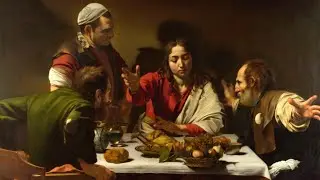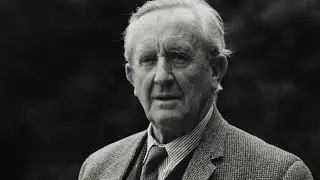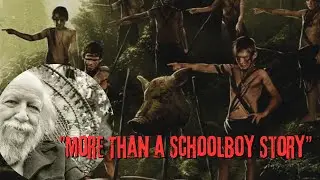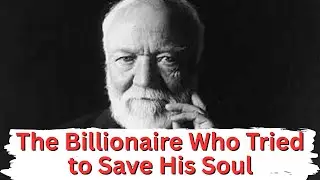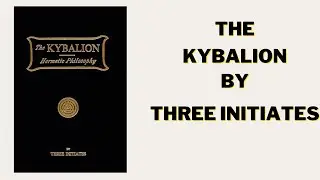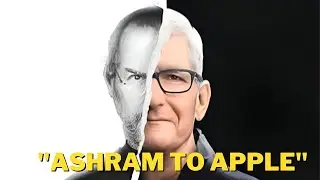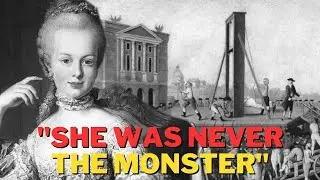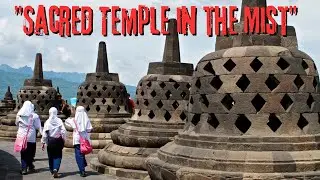"The Legacy of Noblesse Oblige: Andrew Carnegie and How the Elite Shaped Society"
What does it mean to have great wealth—and how should it be used? In this video, we delve into the concept of Noblesse Oblige, the idea that privilege and power come with the moral obligation to help others. At the heart of this philosophy stands Andrew Carnegie, a man whose story encapsulates the transformative power of wealth when guided by responsibility.
Born into poverty, Andrew Carnegie rose to become one of the wealthiest industrialists of the Gilded Age, building an empire in steel. Yet his true legacy lies in how he gave it all away, pioneering modern philanthropy. Through his Gospel of Wealth, Carnegie championed the idea that the elite have a duty to use their riches to benefit society.
This video explores Carnegie’s life, his contributions to education and culture, and how his beliefs reshaped the role of the wealthy in society. From funding over 2,500 libraries to supporting scientific research and education, his actions sparked a global conversation on the responsibilities of the rich.
What This Video Covers
The Origins of Noblesse Oblige
Tracing the roots of the concept in European aristocracy.
How this idea evolved in America during the Gilded Age.
Andrew Carnegie: The Man and His Vision
Carnegie’s journey from a Scottish immigrant to the “Steel King.”
How his personal philosophy shaped his actions as a philanthropist.
The Gospel of Wealth
Key tenets of Carnegie’s groundbreaking essay on wealth and morality.
Why he believed in giving wealth away during one’s lifetime rather than passing it to heirs.
Carnegie’s Legacy: Transforming Society
Contributions to libraries, education, and the arts.
Funding peace efforts and the Carnegie Endowment for International Peace.
The Role of the Elite Today
Are today’s billionaires living up to the ideals of Noblesse Oblige?
Comparisons between historical and modern philanthropy.
Critiques and Controversies
The contradictions in Carnegie’s labor practices vs. his philanthropy.
Debates over wealth inequality and its societal impact.
Why This Story Matters
The story of Andrew Carnegie is not just about wealth—it’s about responsibility. It’s a tale of how one man’s beliefs shaped the lives of millions and redefined what it means to be rich. His legacy challenges us to ask important questions: What obligations come with privilege? How should the elite contribute to society?
By exploring Carnegie’s life and the principles of Noblesse Oblige, we uncover timeless lessons on leadership, responsibility, and the enduring power of giving back.
Who Should Watch This Video?
History enthusiasts curious about the Gilded Age.
Entrepreneurs and business leaders inspired by philanthropy.
Viewers interested in wealth, power, and social responsibility.
Students of social and economic history.
Call to Action
👉 Explore the incredible story of Andrew Carnegie and the transformative philosophy of Noblesse Oblige! LIKE, SHARE, and SUBSCRIBE to @CryptoStoicInsights for more deep dives into history, philosophy, and societal change.
🔔 Hit the notification bell so you don’t miss our latest videos!
Engage with Us
What do you think of Andrew Carnegie’s philosophy? Do you believe today’s wealthy elite are living up to the ideals of Noblesse Oblige? Share your thoughts in the comments below!
Conclusion
Through the lens of Andrew Carnegie’s life, we examine how the concept of Noblesse Oblige has influenced society, culture, and history. This is more than a historical account—it’s a reflection on how privilege and responsibility intersect in shaping the world.
Join us in exploring the timeless lessons of giving back, the moral dilemmas of wealth, and the enduring impact of those who take action to better humanity.





![Understanding Klee’s Animation Cancel Attacks [Genshin Impact 1.6]](https://images.mixrolikus.cc/video/2OX-wzpwhdc)

![[Spongebob Voice Generator] How to Make Your Voice Sound Like Spongebob](https://images.mixrolikus.cc/video/5Z3ykz98Et0)

